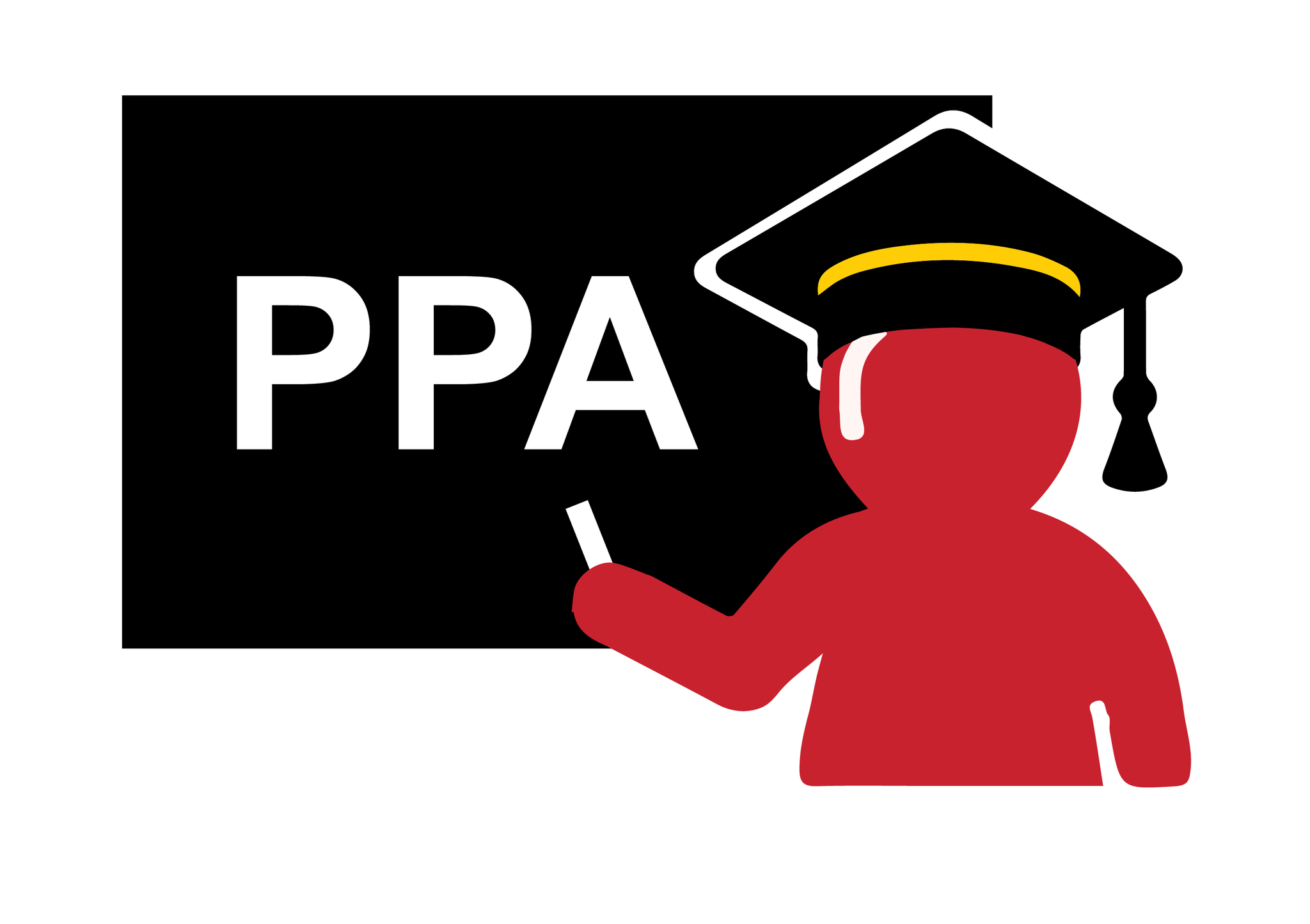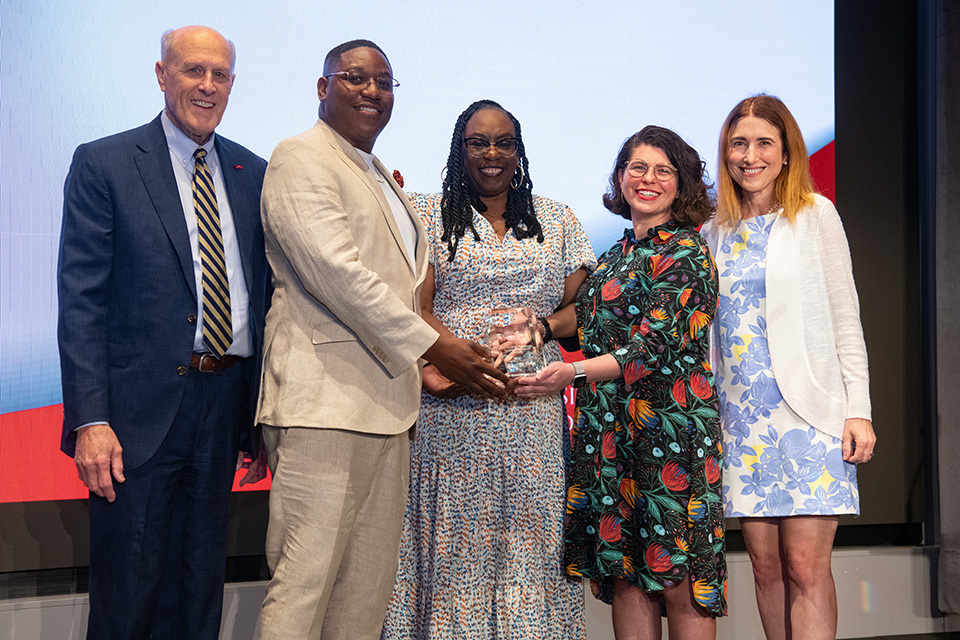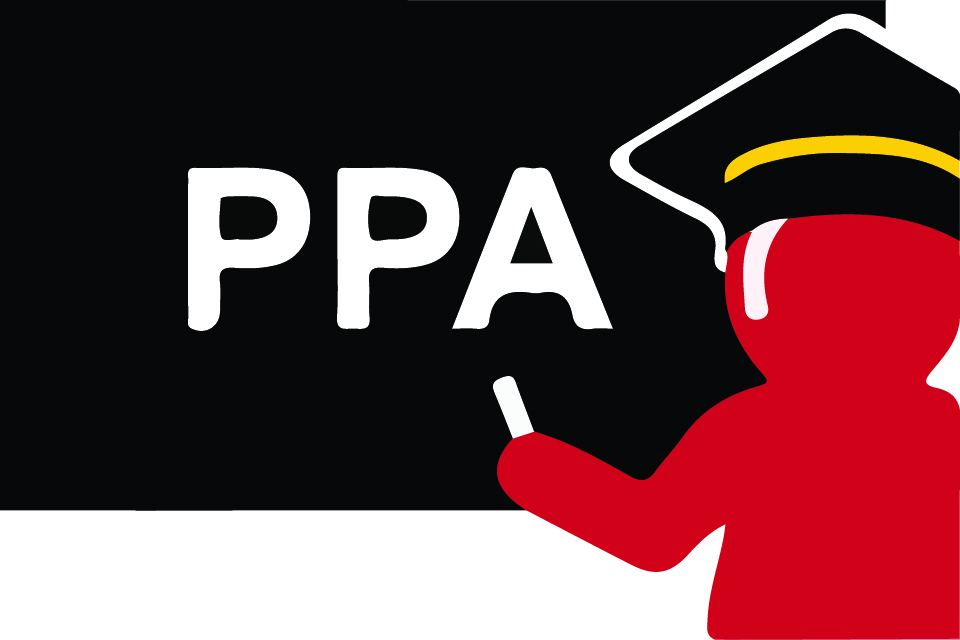PATIENTS Professors Academy Graduates First Class
125 students participated in inaugural virtual course.

By Andrew Tie
September 1, 2022
Description of featured image: C. Daniel Mullins, PhD, professor of pharmaceutical health services research and executive director of the PATIENTS Program, speaks during the PPA virtual graduation.
For five weeks this summer, the PATIENTS Program at the University of Maryland School of Pharmacy held its inaugural PATIENTS Professors Academy (PPA), a virtual course meant to teach evidence-based principles of authentic community-engaged research. On Aug. 15, the 125 course participants took part in a virtual graduation ceremony, closing out a successful endeavor for the PATIENTS Program. A unique aspect of the program is that many of its instructors were PATIENTS Professors, individual patients and community leaders who have collaborated with the PATIENTS Program on designing, conducting, and disseminating research.
“On behalf of the University of Maryland, Baltimore (UMB), I want to congratulate this inaugural graduating class of the PPA,” said UMB President Bruce Jarrell, MD, FACS, in his graduation remarks. “I know (the PPA) will lead to better community research, and it will add diverse populations to our research program as intelligent, informed, and enthusiastic participants. You will have great impact on your communities, you will help build trust leading to better outcomes, and that’s what we’re about here. We’re about better outcomes and health equity.”
PPA Coursework
Building on the PATIENTS Program’s success in conducting patient-centered research, the PPA brought together researchers, patients, and other interested individuals. It covered a variety of topics including health equity; diversity, inclusion, and justice; community engaged research, and more. Weekly coursework included a one-hour online interactive seminar, written reflections on what participants learned, and readings.
Students also learned PATIENTS’s 10-step framework for continuous patient and stakeholder engagement, which equips patients and care providers to drive research in their communities. It instructs the learner on how to incorporate patient-centeredness and their communities into a research plan.
In addition to regular PPA coursework, the PATIENTS Program created a Summer Roundtable Series, free, virtual discussions with content experts to complement and expand on the PPA curriculum.
“We at the PATIENTS Program have learned a lot from each of you, not just our PATIENTS Professors, but those of you who were willing to share in those small breakout discussions,” said C. Daniel Mullins, PhD, professor of pharmaceutical health services research and executive director of the PATIENTS Program, during the graduation ceremony. “We’ve learned a lot from you, and that’s allowed us to continue to embrace the concept of true bidirectional learning.”
Graduates of the PPA are now prepared to advise companies, government agencies, community-academic partnerships, and other entities on ways to make clinical and translational research more relevant, appealing, and diverse.
Keeping Patients at the Center of Research
Barbara Palmer, a PPA graduate, breast cancer survivor, and mentor from Baltimore, said the PPA showed her how valuable and needed her voice is as a patient when it comes to research.
“The academy made me realize successful research studies can be achieved when all parties needed at the table participate from the very beginning of the study to the very end,” she said.
Palmer is hoping to carry this knowledge forward and help fellow African Americans see the importance of participating in research.
“There is no way you can end this course and not feel the need to continue this path to make a difference in so many positive ways in so many lives,” Palmer said.
Belinda Rogers, CRPF, CCTF, CM, a senior quality facilitator for Telligen in Oklahoma, said she applied to the PPA to continue fighting for those who do not have a voice and to impact changes to systems of care. A highlight of the experience for her was hearing stories from patient advocates.
“The PPA was more than I imagined it would be,” Rogers said. “A challenge for me was having to confront my own biases and learn to be comfortable with being uncomfortable to grow and broaden my perspectives on many issues covered in the PPA.
“I feel more empowered and confident in ways to approach this work. My passion is even greater for this work and because of the PPA, I feel more informed and equipped to do the hard work that lies ahead.”



